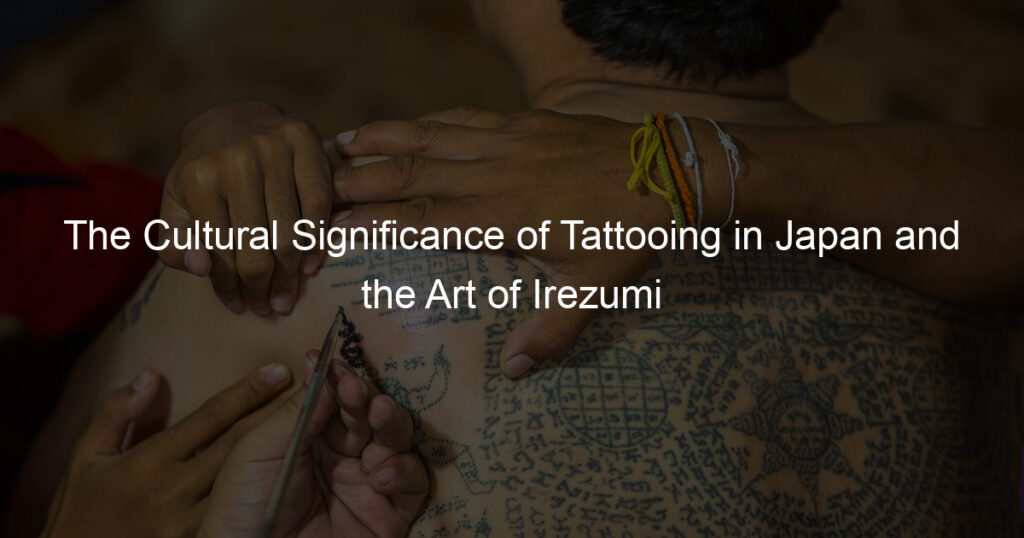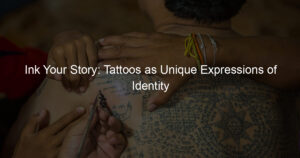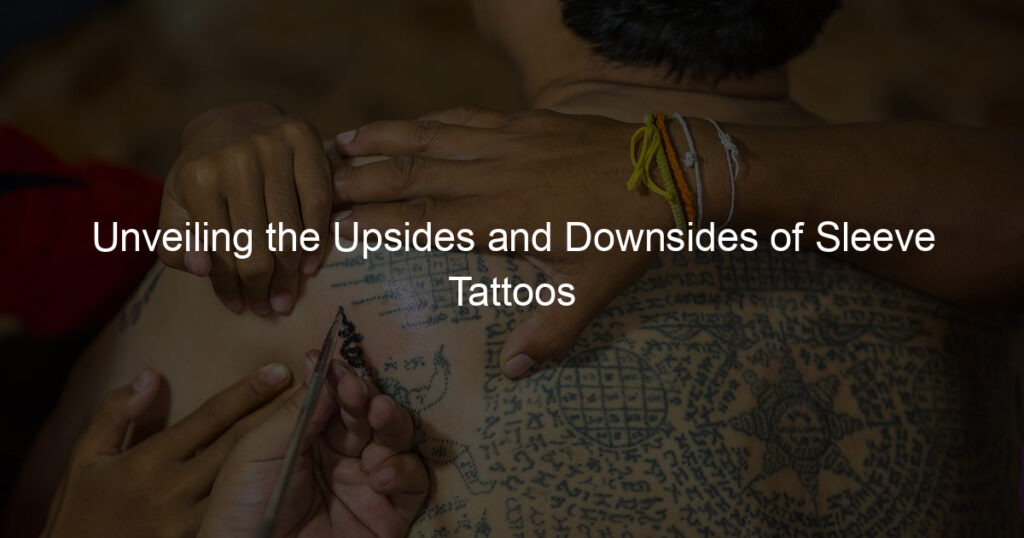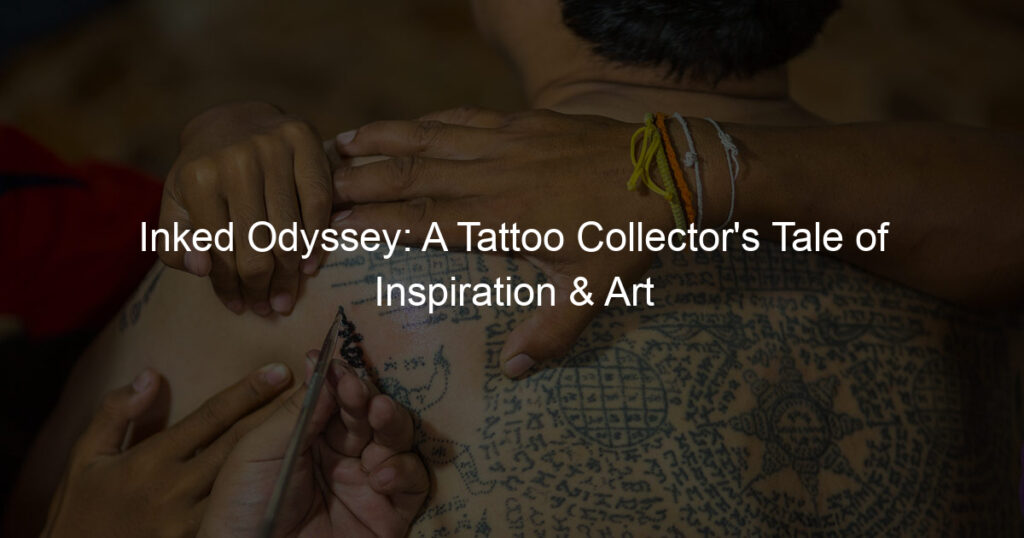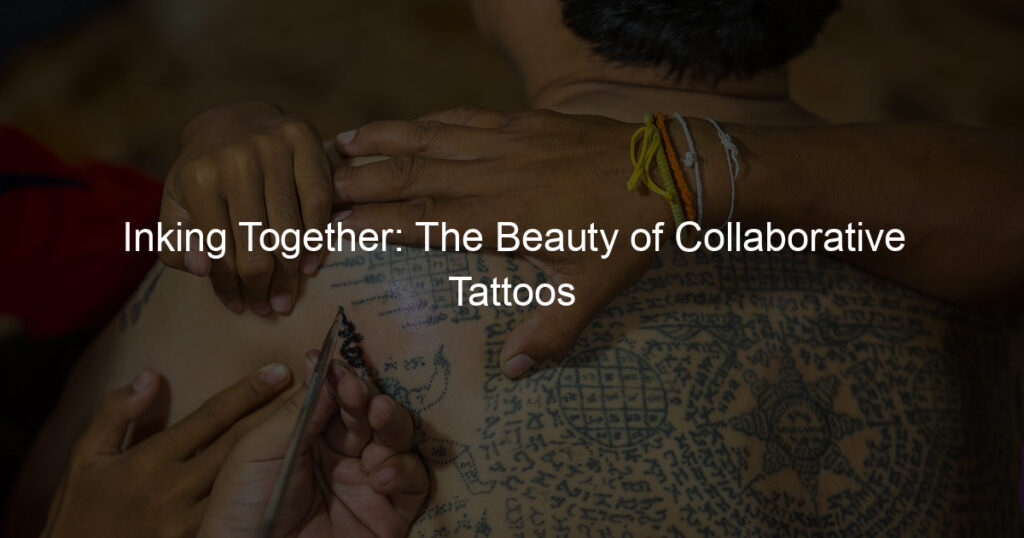Tattoos have been around for centuries and each culture has its unique take on the art form. In Japan, tattooing is steeped in tradition and has a long history dating back to the Edo period.
Irezumi is the Japanese word for tattooing, and it’s considered a highly respected art form.
Japanese tattoos are often large and elaborate, with traditional motifs such as dragons, koi fish, tigers, and cherry blossoms. They can be seen as a way to express one’s individuality, or as a form of personal expression.
Tattooing was once banned in Japan under the Meiji Restoration in 1868, but it has since made a comeback and is now gaining popularity among younger generations. What makes Japanese tattoos so special and significant? Keep reading to find out!
What is the significance of tattoos in Japanese culture?
Tattoos have an interesting and complex significance in Japanese culture. Though historically traditional tattoos were symbols of criminals, many modern-day Japanese people are seeking out body art as a means of self-expression.
It’s often said that there’s no other place where you can find such finely detailed work. Even though there still is a stigma surrounding body art in Japan.
Some younger people are finding ways to express their individuality by creating unique tattoos with detailed designs and symbolism.
Tattoo artists are seen as respected professionals within the community, crafting masterpieces that come from centuries of cultural influence and meaning. Ultimately, tattoos in this culture serve as a way for people to embrace their identity and honor their history at the same time.
What is the significance of the tattoo in their culture?
Tattoos have been a part of cultures all over the world for centuries; in some places, they tell stories or signify unity within a group. In certain cultures, they are seen as symbols of strength and courage – but they also have an important role in decorating and beautifying the body.
For example, in Maori culture tattoos are known as Ta Moko and are traditionally facial designs worn by both men and women; they are considered to be expressions of an individual’s identity and play an important role in representing the wearer’s genealogy, status, rank, and entitlements.
The skill of crafting these artworks is passed down through generations, with each artist having a special way of interpreting the traditional design patterns. Overall, tattoos can be seen to carry a great deal of cultural significance within their respective societies.
What is the purpose of Irezumi?
Irezumi is a type of body art originating in Japan that has been practiced for thousands of years?
It features intricate designs and symbols created with dye injected under the skin. The purpose of irezumi is to tell stories and commemorate important people, places, or moments in Japanese culture and history.
In addition to the designs being visually beautiful, they also carry a lot of meaning and represent different things depending on the context or personal preference.
For some, it’s a way to pay tribute or memorialize someone, while others might use it to signify their faith or as a representation of power gained over adversity. Either way, there’s no denying that irezumi carries deep cultural meaning and can be used to express beliefs without having to utter a word.
What is Japanese Irezumi?
Japanese Irezumi is a traditional form of body art that uses dark ink to create beautiful designs on the skin. This practice goes back centuries, with its origins rooted in religious rituals, spiritual beliefs, and decorative elements.
The meaning and message of an irezumi design can be monumental, ranging from honoring Japanese gods and spirits to expressing gratitude or paying respect to ancestral figures.
Irezumi designs can take anywhere from months to years to complete with delicate brush strokes added one at a time by experienced tattoo artists known as tebori-shi.
This detailed work results in stunning works of art that adorn many aspects of Japanese culture today, including yakuza gang members and members of the Ryūgū-kai festival.
What is the Japanese history of tattooing?
Tattooing is a large part of the culture in Japan; it has been practiced for centuries and holds symbolic meaning. In the past, only certain members of society had the privilege of having tattoos.
Ancient kings were the first to get adorned with intricate designs, often on their hands or forearms, to protect them from harm. Soldiers also got tattoos to display loyalty to their clan; this was thought essential on the long and treacherous battlefields during times of war.
By the Edo period (1603–1868), all sorts of people developed an interest in tattooing. It eventually transitioned from being considered a sign of rank among the nobility to becoming an art form amongst commoners, who used it for more decorative means.
The Japanese style is known for its bold lines and creative flair, and can still be seen adorning many today!
Are tattoos part of Japanese culture?
Japan has a long and diverse history, and tattoos are the perfect way to express your unique culture, whether through traditional symbols or modern designs. While often misunderstood in other cultures, in Japan getting a tattoo is seen as a way to make our body into a work of art.
They act as an outward reflection of our inner feelings and beliefs, connecting us with a culture that dates back centuries. So even though it may not be for everyone, tattoos have certainly become part of Japanese culture over time.
It’s a wrap!
Tattooing holds a lot of cultural significance in Japan and is seen as an art form. Irezumi artists are highly skilled and the process can be quite painful.
If you’re considering getting a tattoo, do your research on the artist and shop to make sure they’re reputable. And if you’re ever in Japan, take some time to appreciate the history and culture behind tattoos!

